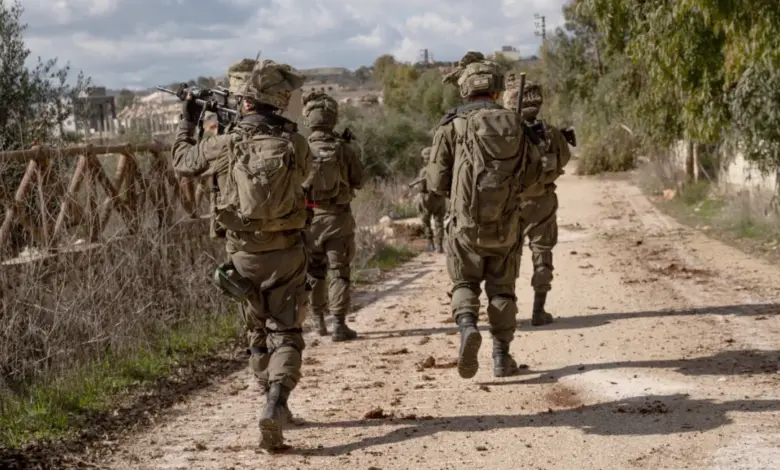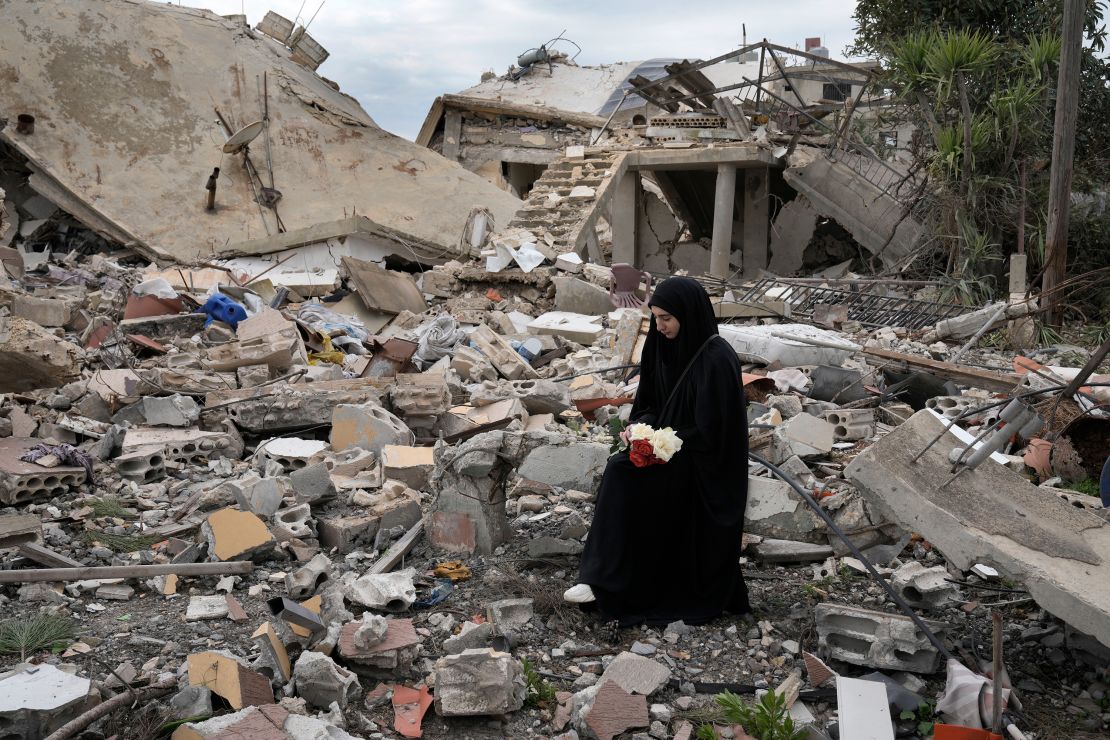
The Israeli military is keeping troops at five southern Lebanese posts despite a Tuesday withdrawal deadline.
The Israel Defense Forces (IDF) will, for the time being, remain at the outposts in Lebanon “so we can continue to defend our residents and to make sure there’s no immediate threat,” Lt. Col. Nadav Shoshani, an IDF spokesperson, said on Monday. Israel’s military identified the handful of strategic locations in southern Lebanon overlooking northern Israeli communities.
The Israeli military is believed to have withdrawn from Lebanese population centers in recent days. The Lebanese military announced new deployments Tuesday morning to various towns in southern Lebanon.
Signaling that Hezbollah is unlikely to launch an immediate fight against Israel’s remaining troops, the group’s Al Manar TV declared on Tuesday that southern Lebanon had “returned because of the blood of the martyrs.”
Israel and Hezbollah ended a year-long war in November, in a ceasefire brokered in part by the United States. A deadline for Israel to withdraw, originally set for January, was extended to February 18 at Israel’s request.

Around 60,000 Israelis were forced from their homes in the north of the country after Hezbollah attacked Israel in solidarity with Hamas, in October 2023. Few of them have returned to border towns that have been devastated by rocket fire. A year-long, low-level conflict culminated last fall with an Israeli invasion and bombing campaign that saw more than a million Lebanese civilians displaced from their homes.
“Based on the current situation, we will leave small amounts of troops deployed temporarily in five strategic points along the border,” Shoshani said. “We are committed to the agreement of the ceasefire. We think it’s a good process.” He declined to say whether Lebanon’s government had agreed to the extension, saying only that the Israeli government had spoken with the ceasefire’s mediators, led by the US.
Publicly, Lebanese leaders had been scathing. Nabih Berri, the speaker of Lebanon’s parliament, said in a Thursday statement that the US had informed him of Israel’s plan, which he rejected on Lebanon’s behalf.
“I refused to talk about any deadline to extend the withdrawal period,” he said, according to Lebanon’s official news agency NNA. “And it is the responsibility of the Americans to impose the withdrawal.” He added that if Israel remains in those locations, it “means that the Israelis will practice freedom of movement and aggression in Lebanon, and this is unacceptable.”
Israel has accused the Lebanese government of failing to uphold its side of the ceasefire agreement, by failing to adequately deploy south of the Litani River – an area from which both Israel and Hezbollah are supposed to withdraw.
The IDF has, on occasion, continued to bomb Hezbollah targets during the ceasefire, accusing the Iran-backed militant group of using military sites in violation of the November agreement. It has also continued, on a near-daily basis, to destroy buildings in southern Lebanon in an effort, the military says, to destroy Hezbollah infrastructure. The efforts have left many of southern Lebanon’s towns in ruins.
The US military, which along with the United Nations and France runs a body to administer the ceasefire and discuss disputes, has been vague – stopping short of confirming that Israel would uphold its withdrawal commitment. In a statement on Friday, Maj. Gen. Jasper Jeffers said that the Lebanese Armed Forces “will control all population centers in the Southern Litani Area before next Tuesday.”
Jeffers has in recent weeks praised the Lebanese military, saying that their “checkpoints and patrols operate effectively,” and that it was providing for stability and security.
An official from the US military’s Central Command declined to comment and referred CNN to the State Department.
Naim Qassem, who assumed the post of Hezbollah secretary-general after Israel assassinated his predecessor, Hassan Nasrallah, in a massive bomb attack last September, said that there were “no excuses” for Israel’s failure to withdraw.
“This is the agreement,” he said in an address on Sunday. “The Lebanese state must take a firm stance and say no – because if Israel remains in any occupied area after that date, it will be in violation of the agreement.”
French Foreign Minister Jean-Noel Barrot said on Thursday that his country put together a proposal for United Nations peacekeepers to replace Israeli forces at key points in Lebanon, Reuters reported. This was meant to ensure that Israeli troops leave Lebanon by the February 18 deadline.
Eugenia Yosef, Nadeen Ebrahim, Pauline Lockwood and Tamara Qiblawi contributed to this report.



